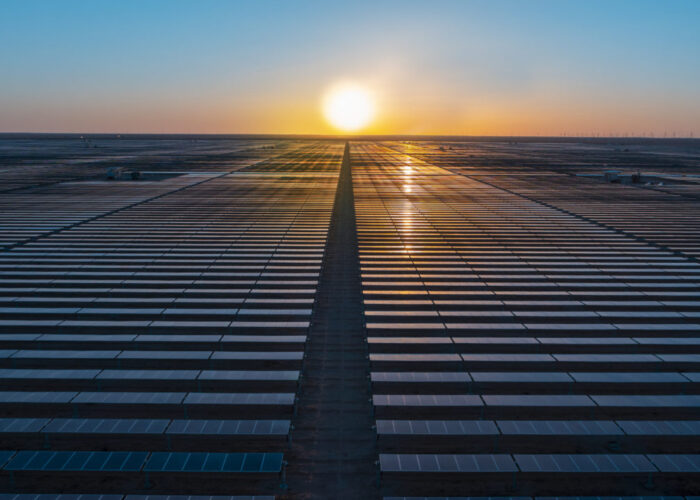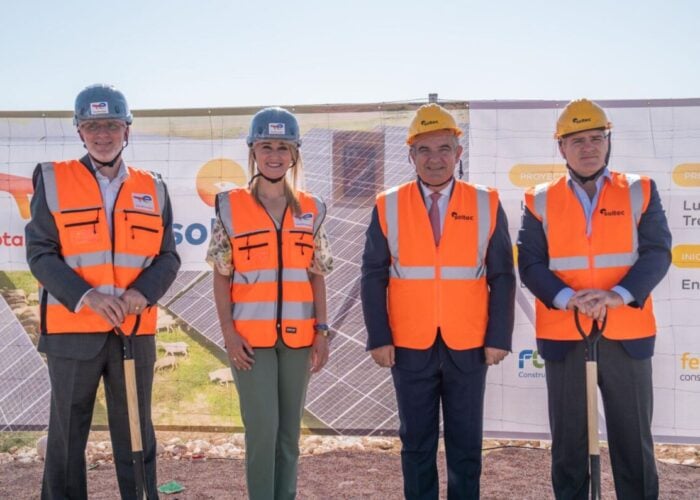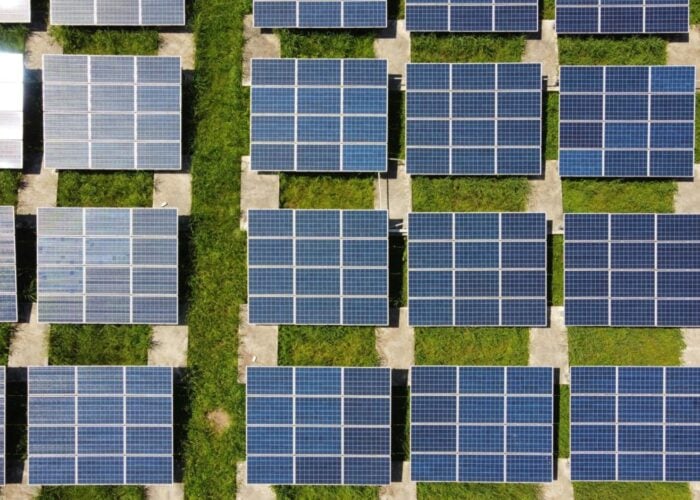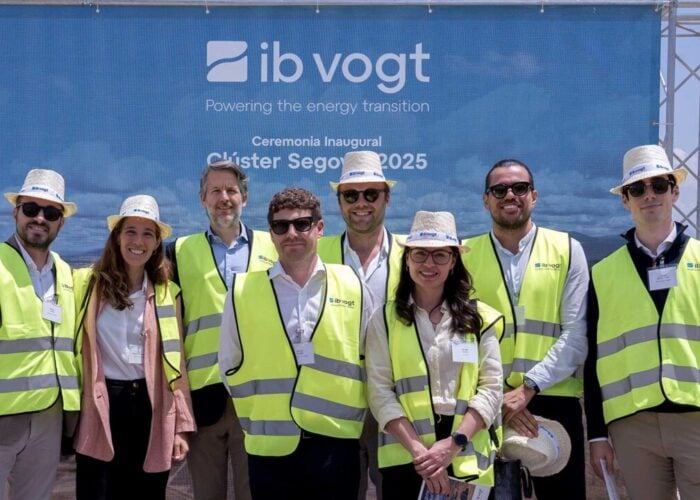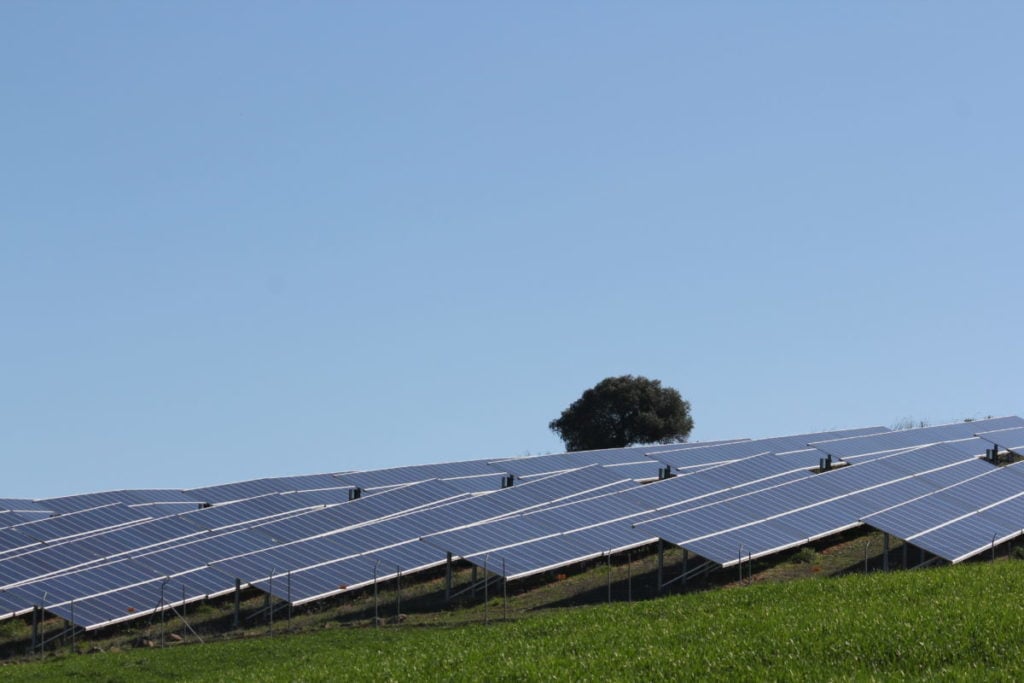
While recent solar auctions in Spain and Portugal have made headlines with low prices and high levels of participation, the power purchase agreement market will be key to helping both countries reach their 2030 solar deployment targets, it was suggested during a panel discussion.
Participants in a discussion during this week’s Large Scale Solar Europe conference, hosted by PV Tech publisher Solar Media, compared both countries’ solar auction mechanisms and how the results are impacting deployment.
Unlock unlimited access for 12 whole months of distinctive global analysis
Photovoltaics International is now included.
- Regular insight and analysis of the industry’s biggest developments
- In-depth interviews with the industry’s leading figures
- Unlimited digital access to the PV Tech Power journal catalogue
- Unlimited digital access to the Photovoltaics International journal catalogue
- Access to more than 1,000 technical papers
- Discounts on Solar Media’s portfolio of events, in-person and virtual
Spain’s national energy and climate plan will see it target 39GW of installed PV capacity by 2030, while Portugal’s is aiming for 9GW. Only part of the capacity to be awarded through auctions, so the PPA market and other alternative markets “will be essential” to meeting those deployment goals, said Manuel Cabrerizo, partner at renewable energy financial advisory firm Voltiq.
Spain was the most attractive European market for solar PPAs last year, according to recent research from renewables software firm Pexapark, which found investors and offtakers from across the continent contributed to a “frenzy” of PPA deal activity in the country.
According to Cabrerizo, the auctions haven’t had an impact on PPA prices in either Spain or Portugal: “If you compare the volumes effectively allocated in the auctions to the volumes effectively traded in those wider markets, it’s not sizable enough to impact prices on a large basis.”
Portugal has caried out two solar auctions – one in 2019 in which 1,292MW was awarded and another last year that saw 670MW allocated – that both saw record-low prices. Enerland’s bid of US$0.0131/kWh for a 10MW lot beat the previous auction record that was awarded for a project in Abu Dhabi.
The low prices recorded in Portugal’s auction last summer, which also allowed participants to submit bids with an energy storage component, were said to be thanks to winning bidders securing perpetual access to the country’s grid, which has limited space available.
Kim Keats, director at consultancy Ekon, said that with Portugal installing less than 140MW of PV last year, “clearly something is working against the deployment of additional capacity in Portugal. And I wonder if auctions are really the best way to solve that bottleneck.”
With limited land availability for new PV installations, Portugal’s third solar auction will take place later this year and include lots for floating solar and projects beside motorways. The country’s state secretary for energy, João Galamba, said last year that the government is exploring other possibilities of unused and cheaper surfaces that can be used for utility-scale solar developments.
According to Keats, the auctions in Spain play a different role that is more around creating momentum so that companies take more risks in their projects. The first auction under the country’s new framework took place in January, was ten times oversubscribed and saw PV bidders secure two-thirds of the 3GW of capacity.
While the mechanism allowed participants to include energy storage, no bids were submitted with the technology, in part because winning storage plants would be limited to charging from the renewable project they are paired with, excluding the possibility of charging energy from the grid.
“It’s clear that the mechanism implemented in Spain wasn’t sufficient for storage to compete,” said Teresa Alfaro Carballo, sales manager key accounts emerging markets at JinkoSolar. With Spain looking to reach 2.5GW of installed battery storage by 2030, some analysts believe the government will change the auction rules this year to encourage the participation of energy storage.
While both Spain and Portugal are expected to tweak their auction systems to help reach 2030 deployment targets, Miguel Marroquin, managing director of PPA advisory company Our New Energy, questioned the necessity of auctions to take place at all, as projects are increasingly being developed on a merchant basis in markets across Europe.
The complete session can be viewed on demand by those attending Large Scale Solar Europe this week. For more details regarding the event and how to register, click here.

